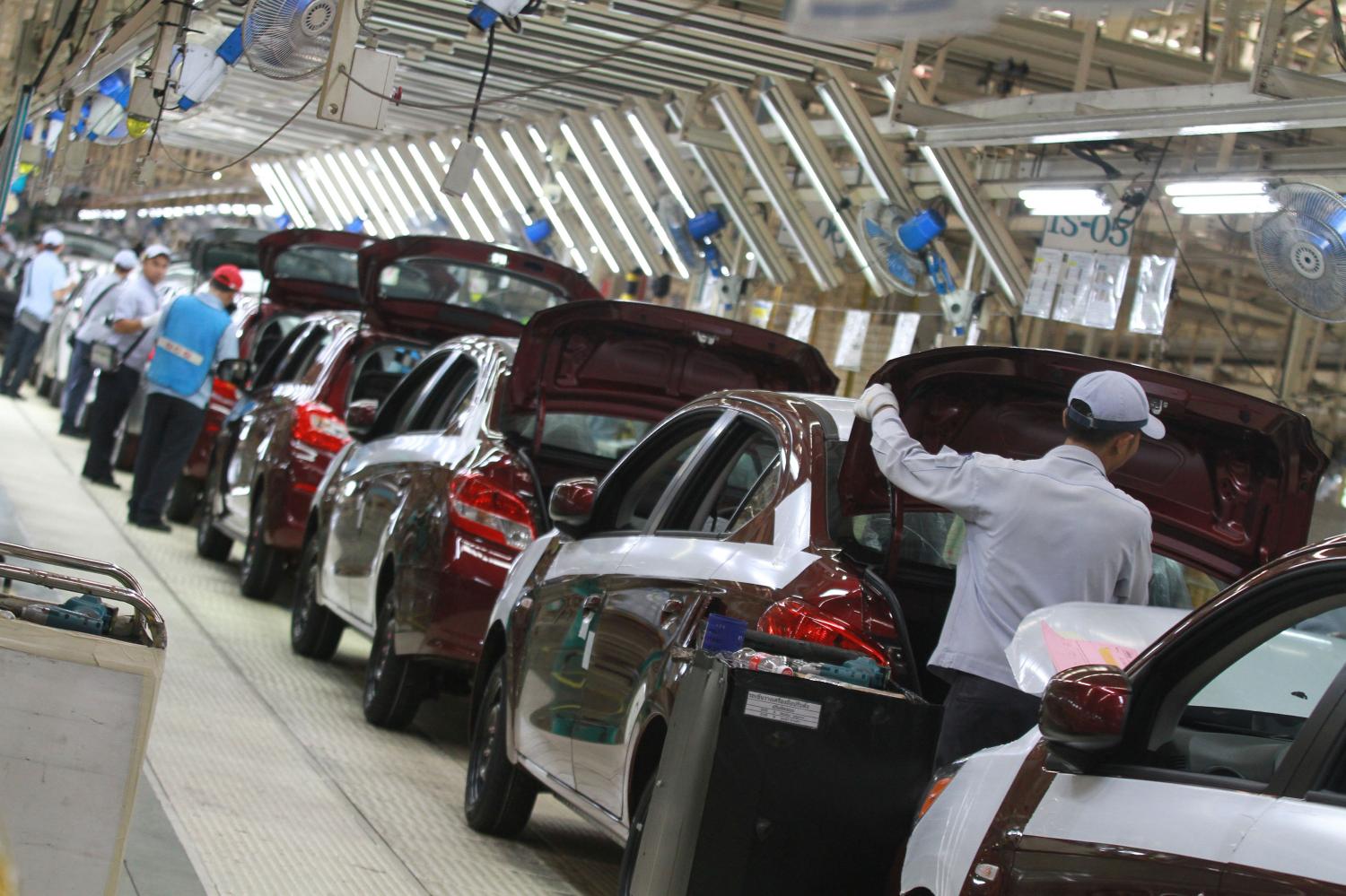
The Federation of Thai Industries (FTI) has warned Thai industrial manufacturers about a global shortage of semiconductors, admitting it could take a toll on their production and urged them to look for alternative supply.
Global demand for semiconductors or chips has surged following the pandemic-induced lockdown, as more people use electronic devices as they switch to working from home. The trade war between the US and China is restricting chip imports from China, which aggravates the situation.
FTI vice-chairman Kriangkrai Tiannukul said the federation is concerned about the short supply of semiconductors for many industries, ranging from auto to smartphones and from computers to the electricity supply segment.
"The shortage largely results from the substantial upswing in demand due to the pandemic and increased use of semiconductors in advanced vehicles," he said.
Car makers rely on semiconductors in auto components, such as power steering, brake sensors, entertainment systems as well as cameras for parking.
"The smarter cars get, the more chips they need," Mr Kriangkrai said. "The pandemic, social distancing in factories and soaring competition from tablets, laptops and electric cars are causing some of the toughest conditions for smartphone component supply in many years."
Semiconductors are the brain of modern electronic devices, enabling highly advanced technologies in healthcare, communications, computing and transportation.
Manufacturers in Thailand need to prepare measures to ward off the problem and seek cooperation from semiconductor suppliers to prevent the shortage, he said.
Surapong Paisitpatanapong, vice-chairman and spokesman for the FTI's automotive club, said several global car makers are struggling with the shortage of semiconductors as chipmakers are reserving supply for tech companies that produce smartphones, tablets and gaming devices.
"Many car makers in the US have reduced their production and some closed production plants due to the shortage of semiconductors, such as General Motors [GM]," he said.
On Tuesday, GM announced it would extend production cuts in the US, Canada and Mexico until the middle of March.
GM is among major car makers, including Ford, Honda and Fiat Chrysler, which have said they need to slow vehicle production due to the chip shortage.
Mr Surapong stressed the club will be closely monitoring the shortage.
In the automotive industry, chips can be used to make cars substantially smarter, safer and more efficient.
The global shortage of certain semiconductors also takes a toll on auto sales due to the slowdown of production, Mr Surapong said.
According to Mr Surapong, the rapid growth of the electric car market has also pushed up demand for semiconductors to the next level since chips are imperative for battery management, driver assistance systems and in-car entertainment.
"The shortage highlights the need for adjustment in capacity and sourcing patterns between automakers, tier-1 suppliers and semiconductor suppliers," Mr Surapong said.